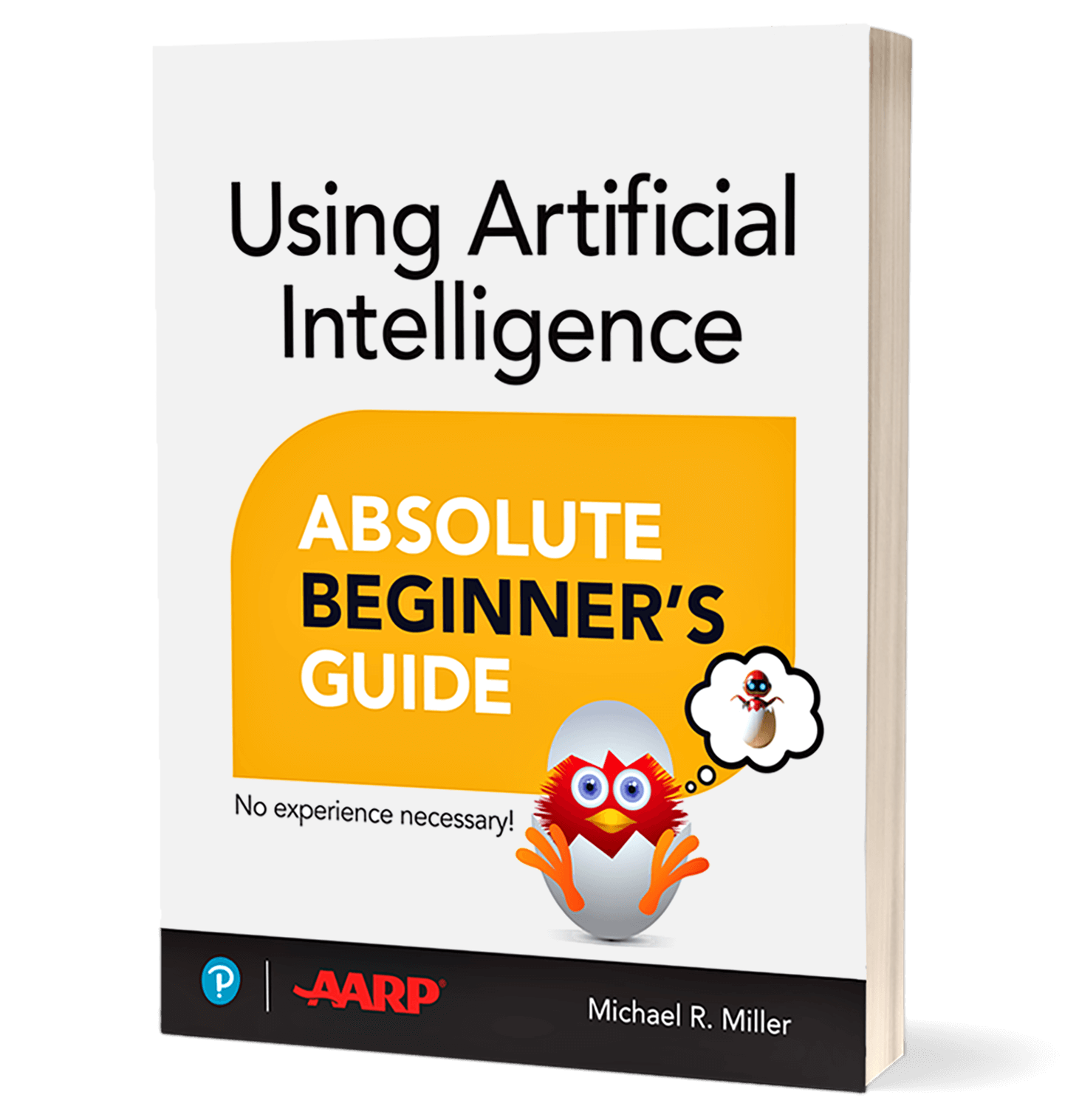Your Life
ASK FOR HELP
Artificial intelligence tools can answer your important caregiving questions—as long as you know what information to enter

Artificial intelligence can help caregivers with common tasks. If you’re a caregiver and not sure what to do in a situation, an all-purpose AI tool such as ChatGPT (chatgpt.com), Google Gemini (gemini.google.com) or Microsoft Copilot (copilot.microsoft.com) can help.
These AI tools generate text responses to user prompts, similar to an online chatbot. You can use them to answer questions, provide information and write material for you.
All you have to do is go to the website, write a prompt—that is, a question or a suggestion—and hit Enter. After the AI response, you can continue the conversation by entering additional prompts; it’s all displayed like a conversation. It’s really as simple as that.
Remember, AI cannot substitute for professional medical, legal or financial advice. Asking AI for help is a good first step, but always consult a professional for all important matters. Remember, AI makes mistakes.
So what should a caregiver ask AI? Here are some sample prompts to help you get started.
Getting Smarter About Medical Information
▶︎ Please explain the doctor’s instructions in language a middle-school child would understand. [List instructions you got from your doctor.]
▶︎ The person in my care has fallen and bruised their hip. What should I do?
Working With Doctors
▶︎ The person in my care has been experiencing episodes of dizziness. What questions should we ask the doctor during an upcoming visit?
Providing Care Plans
▶︎ Please create a personalized care plan for a person for whom I’m caring. They are 5-foot-4, 130 pounds and have been experiencing dizzy spells. They are in generally good health and require intermittent care. Include information about daily schedules, medication maintenance, diet and exercise.
Improving Nutrition
▶︎ Please provide a seven-day meal plan for an 85-year-old woman, 140 pounds, with a heart condition. This person needs to restrict carb consumption and is allergic to soy. They’d like to maintain or increase their weight by a few pounds over the next month.
Navigating Financial Waters
▶︎ Create a budget for managing caregiving expenses for an 80-year-old woman living on her own with minimal care.
▶︎ What are strategies to manage my fathers’s medical expenses?
▶︎ What is the best type of long-term care insurance for my 85-year-old father?
Understanding Legal Issues
▶︎ What do I need to know about estate planning for my 80- and 75-year-old parents?
▶︎ My mother has approximately $500,000 in savings. How can I best manage her finances on a weekly basis?
Receiving Personalized Advice
▶︎ My father is 90 and living by himself in an apartment. He has trouble walking and is no longer capable of driving. His mind is still sharp, but his memory is starting to fade. He doesn’t like people looking after him but needs assistance with many things. Can you give me some advice on caring for him?
▶︎ My mother is no longer capable of maintaining her house and yard by herself. We’re afraid she’d react adversely to moving to an assisted-care facility. What options do we have in this situation?
Discovering Other Resources
▶︎ Are there any local support groups for children caring for parents with Alzheimer’s?
▶︎ My 85-year-old mother is having foot problems. Can you recommend a specialist in our area?
▶︎ Can you recommend someone who can help me understand Medicare options for my 85-year-old aunt?

Adapted from Using Artificial Intelligence: Absolute Beginner’s Guide by Michael R. Miller, published by Que Publishing and AARP Books. To be released on Nov. 27. Preorder at aarp.org/techbooks.